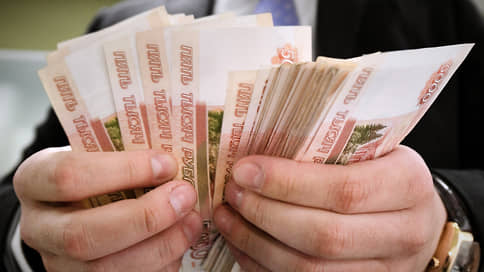The government expanded the use of cash in foreign trade transactions
[ad_1]

Problems with settlements in foreign trade caused by sanctions are forcing the White House to continue to soften regulation in this area. The adopted government decree allows Russian companies to receive cash advances from foreign counterparties. It is also allowed to credit accounts in Russian banks with cash imported into the country – both in rubles and in foreign currency. The business community is pleased with the new easing, but notes that they do not remove all problems with international payments.
The government has expanded the ability of exporters and importers to settle with their foreign partners using cash. The first resolution legalizing this possibility was adopted at the end of 2022, as it was then explained, to reduce the risk of blocking banking transactions abroad due to sanctions (see Kommersant dated November 21, 2022). It was allowed to use cash to pay non-residents for goods already delivered, work performed, information transferred and results of intellectual activity (including exclusive rights). Also, cash can be used to return advances paid by Russian importers (in the event of a disruption in deliveries to the Russian Federation) and to settle loans on loans granted to non-residents.
The Government Decree adopted now further expands the possibilities of using cash. This form of payment can now be applied not only to obligations already fulfilled, but also in general for amounts due under contracts, that is, in the case of shipment of goods after partial payment.
As a result, the Finance Ministry explained yesterday, Russian exporters will be able to receive advance payments in cash from foreign counterparties. Such a decision has been discussed since April of this year – then the financial department, at the suggestion of the Central Bank, developed a draft resolution. As noted, “an analysis of law enforcement practice revealed that advance payments are made under foreign trade agreements.”
Also, the adopted document allows the transfer of cash imported into the country to accounts in Russian banks both in Russian rubles and in foreign currency. Prior to this, only the sale of currency at the Central Bank rate and the transfer of received rubles to the company’s account were supposed.
The Russian Export Center told Kommersant that advance payments are widely used by Russian exporters – “this is the most reliable form of payment, since then, of course, the risk of a foreign buyer refusing to pay for goods that have already been delivered is reduced.”
Member of the General Council of Delovaya Rossiya Maxim Chereshnev welcomes the expansion of the possibility of using cash. According to him, “import today without advance payment is generally impossible – other countries are afraid to work without it, there is export without advance payment, but companies try to avoid such an approach because of the risks.” As Vladimir Gamza, head of the CCI council on industrial, financial and investment policy, adds, “like any restriction, the inability to use cash for advance payments was quite painful, since many contracts provide for advance payments – this is a normal commercial operation and in the presence of a stable relationship with a partner.” Nikolai Dunaev, Vice President of Opora Rossii, considers the further legalization of cash payments a significant decision, especially in a situation where, according to him, “payment through banks has become a quest” and given the fact that earlier “in Russia, cash payments were burned with a red-hot iron” . The expert notes that those who worked with cash continued to do so, so the government’s decision is more of a step towards bringing the “legislative situation to reality.”
Ekaterina Ardasheva, senior lawyer at BGP Litigation’s international tax planning practice, believes that this decision will remove some of the problems of exporters and importers, whose foreign counterparties are ready to make settlements under contracts in cash. “However, not all foreigners are ready to switch to this form of payment, and logistical difficulties remain,” says the lawyer. According to Maxim Chereshnev, the measures taken are not enough – foreign economic activity continues to be vulnerable due to blocking payments. The relaxations, he said, partially help, but not 100%, since receiving and importing cash is “also a difficult process.” I agree with this and Nikolai Dunaev. He notes that cash has a rather limited use – it is mainly about transactions of small and medium-sized businesses or advance payments, so it is necessary to resolve the issue of legalizing barter transactions and payment hubs.
[ad_2]
Source link






